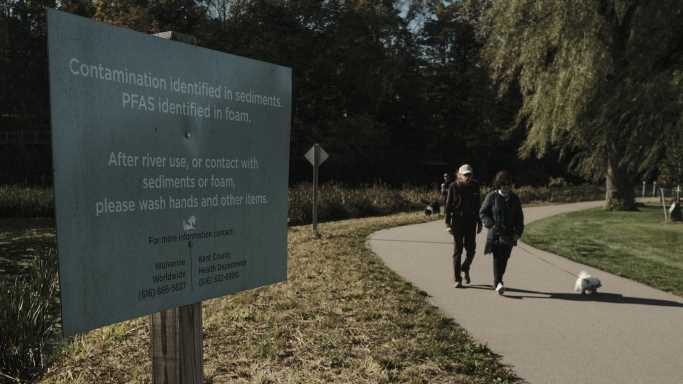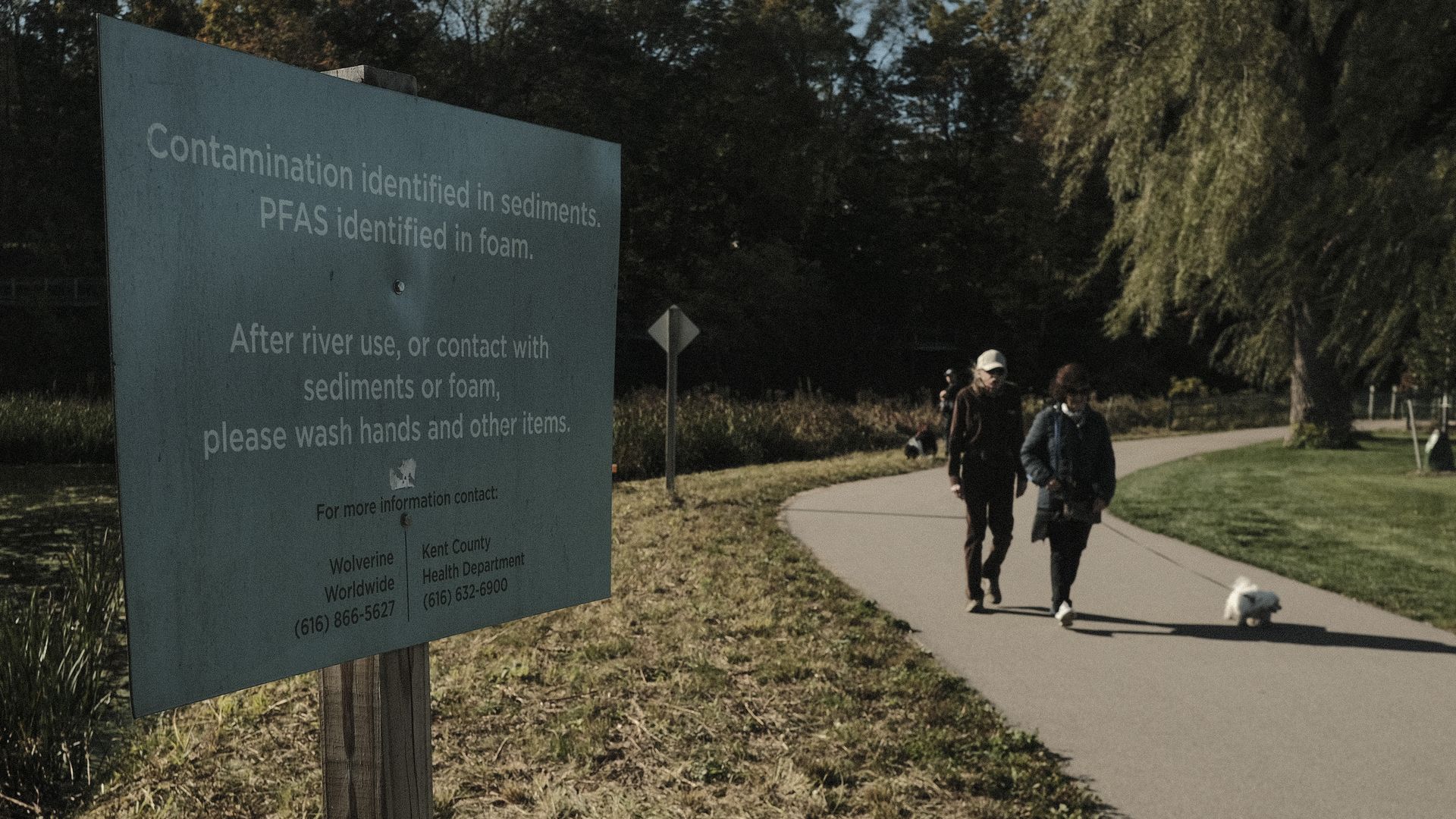Chemists discover new method to destroy "forever chemicals"
A sign warning people of PFAS contamination in the Rogue River in Rockford, Michigan, in October 2021. Photo: Matthew Hatcher/Bloomberg via Getty Images
Chemists at University of California, Los Angeles, and Northwestern University discovered a new way to destroy "forever chemicals," using a common ingredient in soap and an organic solvent, according to a study published in the journal Science on Thursday.
Why it matters: The extremely durable and toxic chemicals have been in drinking water systems around the U.S. and are linked to adverse health effects. The new method is a relatively cheap and mild way to break them down.
Per- and polyfluoroalkyl substances (PFAS) — dubbed "forever chemicals" for their durability — are a family of nearly 5,000 types of chemicals that largely resist degradation by repelling oil and water and withstanding high temperatures.
- They have been used in several nonstick, water-repellent and fire-resistant industrial and consumer products for decades, including cookware, some food packaging and fire fighting materials.
- Because they resist degradation, PFAS can accumulate in people, livestock, fish and wildlife if they enter the environment through production or waste streams.
How it works: The chemists discovered that a mixture of sodium hydroxide, or lye, combined with dimethyl sulfoxide, a common organic solvent, in water heated 176 to 248 degrees Fahrenheit was able to break the strong bonds that hold together perfluoro carboxylic acids (PFCAs), one of the largest classes of PFAS.
- The reaction leaves behind fluoride ions that can be easily captured and carbon-containing byproducts.
- The researchers said the new mild process is unlike many other harsh and energy-intensive PFAS destruction techniques, which include incineration, electrochemical degradation and supercritical water oxidation.
The big picture: The class of chemicals has recently received increased scrutiny from the federal government, with the Environmental Protection Agency issuing new health advisories for four PFAS compounds earlier this year.
Go deeper: EPA issues health advisory for "forever chemicals" in drinking water
Source: Read Full Article


